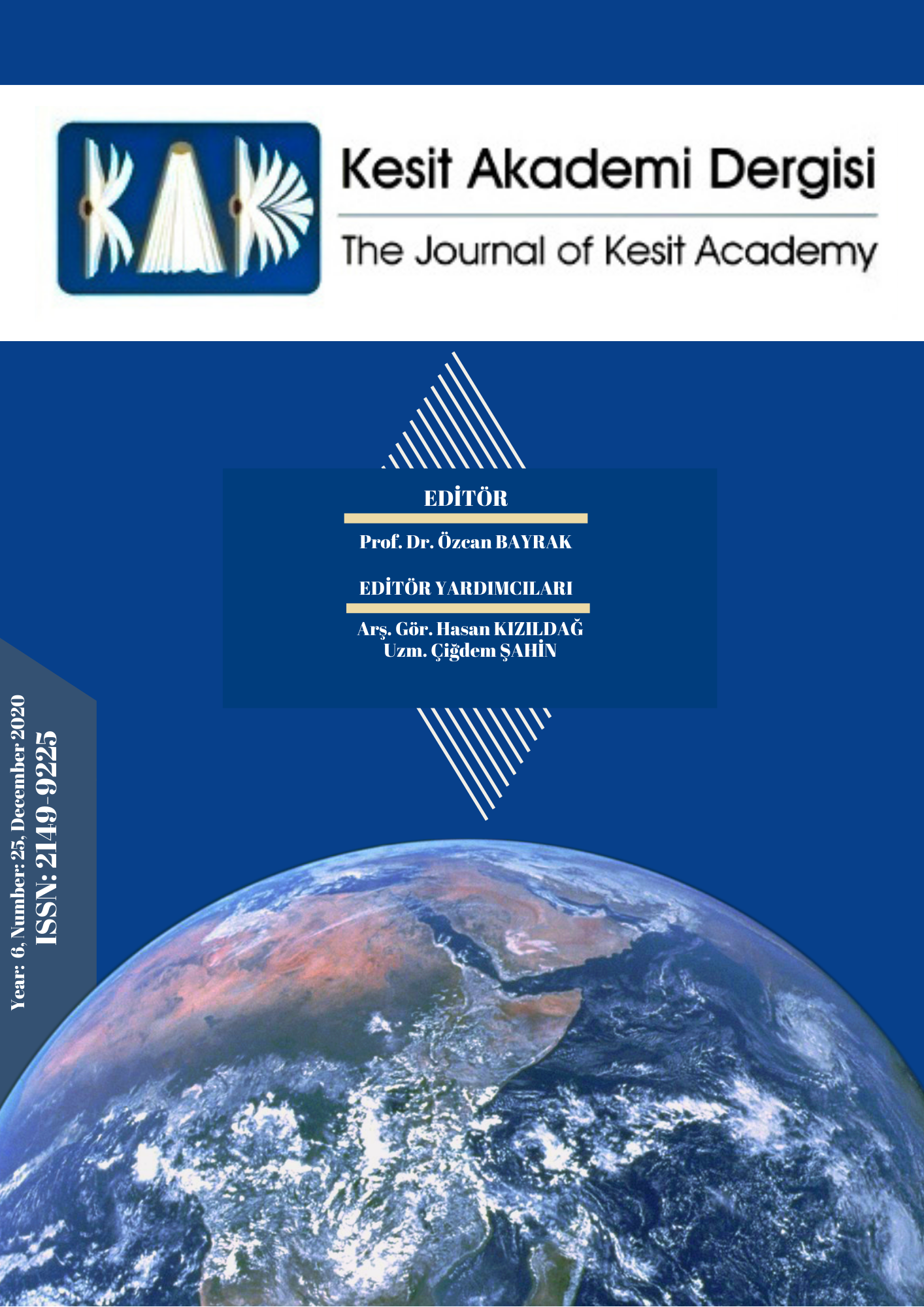BEYAZ GELİNLİK (1989) FİLMİNDE ÖZNEL AŞK YAŞANTISININ ANALİZİ: SAPLANTILI AŞK VE KİŞİLİK ORGANİZASYONU İLİŞKİSİ
Author :
Abstract
Bu çalışma, başrollerini Vanessa Paradis ve Bruno Cremer’in üstlendiği Fransız filmi Noce Blanche’i saplantılı aşk ve kişilik organizasyonu bakımından irdelemektedir. Lise öğrencisinin felsefe öğretmeniyle yakınlaşmasının saplantılı aşka evrilmesini konu edinen anlatı, öznenin kişilik yapısıyla aşk yaşantısının ilişkili olduğunu göstermektedir. Makale, öznel aşk deneyiminin kişilik bozukluğundan bağımsız gerçekleşemeyeceğini ve hastalıklı tutkunun çocukluk yaşantılarına uzanan yetişkinlik nevrozundan kaynaklanabileceğini göstermektedir. Karakterin ebeveynlerinin duygusal ihmal ve istismarına maruz kaldığı, tutarlı benlik algısı inşa edemediği, ötekiyle deneyimlediği sorunun çocukluk yaşantılarına dayandığını göstermektedir. Özgün değerden yoksun olan karakter, destek gördüğü öğretmenine zorlanımlı bağımlılık duymuş ve bu, yıkıcı hale dönüşmüştür. Karakter tamamlanamamış Oedipus kompleksini öğretmeniyle tekrar deneyimlemiş ve anneyi yok ederek babanın karısı olma arzularını dışa vurmuştur. Çalışma, sahip olamadığı babayı ötekinde kompanze etmeye çalışan karakterin aşk yaşantısının patolojik hale dönüşmesinde çevresel faktörlerin etkisiyle latent durumdan sıyrılıp açığa çıkan genetik kişilik bozukluğunun etkili olduğunu ve mazoşist eğiliminden dolayı nesneyi kendini yok ederek ortadan kaldırmaya çalıştığını göstermeyi amaçlamaktadır.
Keywords
Abstract
This study analyses the French movie Noce Blanche, starring Vanessa Paradis and Bruno Cremer, in terms of the relationship between obsessive love and personality organization. The narrative centres around a high school student who becomes obsessed with her philosophy teacher. The paper reveals that personality organization of the subject and subjective experience of love are interrelated and love cannot occur independently of personality disorder. It reveals that the character is subjected to emotional neglect and abuse of her parents and cannot build a consistent sense of self. The problem she experiences with the other is thus based on her experiences with the family. She feels a compulsive dependence on her teacher which turns into a destructive form, and re-experiences the Oedipus complex, expressing the desire to become the father's wife by destroying the mother. The study suggests that the character who compensates the ideal father in the other, is afflicted with a genetic personality disorder that emerges due to environmental factors and because of her masochistic tendency, destroys the object through destroying herself.
Keywords
- Adler, A. (2016). Yaşama Sanatı (Çev. K. Şipal). İstanbul: Say Yayınları.
- Adler, A. (2016). Yaşama Sanatı (Çev. K. Şipal). İstanbul: Say Yayınları.Bowlby, J. (2014). Ayrılma (Çev. M. Günay). İstanbul: Pinhan Yayıncılık.Castanet, H. (2017). Lacan’ı Anlamak (Çev. B. Aslan). İstanbul: Encore Yayınları.
- Cori, J. L. (2018). Annenin Duygusal Yokluğu (Çev. B. S. Haktanır). İstanbul: Koridor Yayınevi.
- Çıraklı, M. Z. (2017). A Modest Proposal for Reading: Four-Aspect Critical Taxonomy for Stu- dents. Journal of Narrative and Language Studies, 5(9), IV-X.
- Erol, Z. ve Sağır, F. G. (2017). Aşk Psikolojisi. İstanbul: Timaş Yayınları. Eryorulmaz, A. (2018). Zehirli İlişkiler. İstanbul: Destek Yayınları.
- Freud, S. (2016). Cinsellik Üzerine Üç Deneme: Bekaret Tabusu, Kadın Cinselliği, Fetişizm ve Diğer Konular (Çev. S. Budak). İstanbul: Öteki Yayınevi.
- Freud, S. (2018). Bakirelik Tabusu (Çev. E. Yıldırım). İstanbul: Roman Oda Yayınları.Horney, K. (2007). The Neurotic Personality of Our Time. Milton Park: Routledge.
- Horney, K. (2017a). Psikanalizde Yeni Yollar (Çev. S. Budak). İstanbul: Totem Yayınları.Horney, K. (2017b). Kendi Kendine Psikanaliz (Çev. S. Budak). İstanbul: Totem Yayınları.
- Manning, S. (2018). Borderline Kişilik Bozukluğu Olan Birini Sevmek (Çev. S. Gürdoğan). İstanbul: Apamer Psikoloji Yayınları.
- Ménégoz, M. (Yapımcı) ve Brisseau, J. C. (Yönetmen). (1989). Noce Blanche (Beyaz Gelinlik).*Sinema Filmi+. Fransa: La Sept Cinéma ve La Sorcière Rouge ve Les Films du Losange.
- Satre, J. P. (2017). Heyecanlar Üzerine Bir Kuram Taslağı (Çev. K. Sarıalioğlu). İstanbul: Kırmızı Kedi Yayınevi.
- Sayar, K. (2018). Psikolojiye Giriş. İstanbul: Dem Yayınları.
- Webb, J. (2014). Çocukta İhmalin İzi: Boşluk Hissi (Çev. G. Arıkan). İstanbul: Sola Yayınları.





